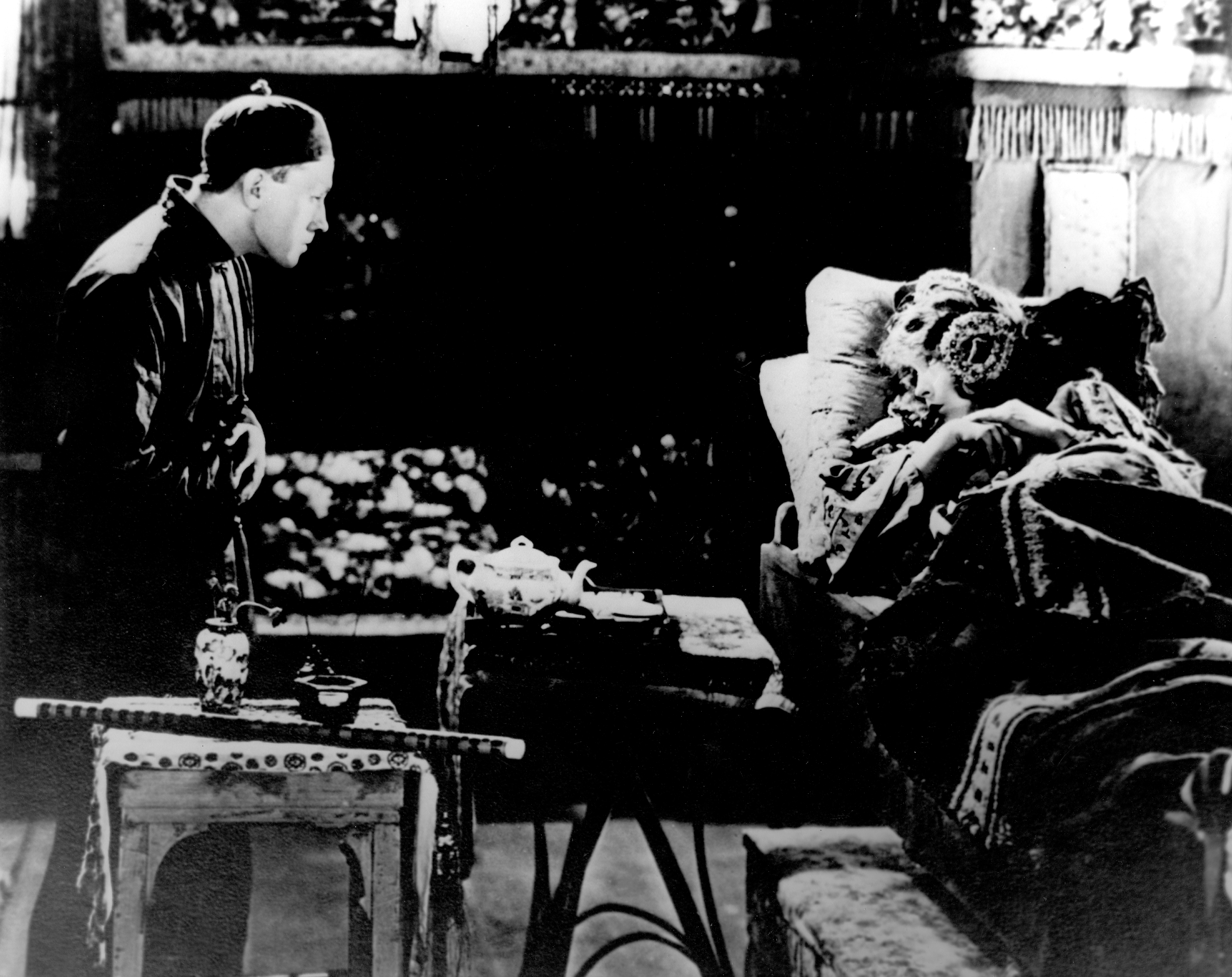 1
1
As a follower of film history and a person of Asian descent, I find the story of “Unbroken Blossoms” to be both enlightening and thought-provoking. The play sheds light on an important yet often overlooked chapter in Hollywood’s past – the contributions of James B. Leong and Moon Kwan, two Chinese consultants who worked on D.W. Griffith’s groundbreaking silent film “Broken Blossoms.”
In the aftermath of the controversial release of “The Birth of a Nation,” filmmaker D.W. Griffith presented “Broken Blossoms” to audiences in 1919. This silent film tells the story of a mistreated young girl who finds solace in the caring presence of a benevolent Chinese man. Adapted from Thomas Burke’s short story “The Chink and the Child,” also known as “The Yellow Man and the Girl,” this box office success stood out for its empathetic portrayal of a Chinese character during a time when anti-miscegenation laws were prevalent and anti-Chinese sentiment was rampant across the United States, marking an era referred to as the “Yellow Peril.”
“Griffith selected a heart-wrenching tale of forbidden and unattainable love in a world filled with passions, prejudices, and brutal forces for his film. The result was ‘Broken Blossoms,’ an extraordinary cinematic masterpiece. However, it’s important to note that while Griffith led the production, there were likely several other individuals who also played crucial roles in bringing this film to life.”
Over a hundred years after the release of that groundbreaking movie, a fresh play brings the unidentified collaborators into the limelight. Named “Unbroken Blossoms,” this East West Players world premiere celebrates the two Chinese consultants who contributed to Griffith’s interracial love story production. A white actor portrays the film’s Chinese immigrant character, with a rubber band used to alter his eyes for a more stereotypical on-screen appearance.
As a cinephile, I’d say this: “I understand that the use of yellowface in this production may not sit well with today’s audience. It was a different time back then, and while it might have been considered progressive, we now recognize its problematic nature. However, I believe that ignoring it would be a disservice to Hollywood history. Instead, we should engage with it, learn from it, and use it as a foundation to tell our own stories more authentically and with greater agency.”

As a cinephile, I’m always on the lookout for fascinating stories behind the scenes of my favorite movies. One such tale is that of “Unbroken Blossoms,” which introduced me to two remarkable figures in early Chinese American cinema.
He shared that his passion for movies was heightened during a surprising discovery: seeing actors who looked like him in major film roles, an experience uncommon during his film studies. What intrigued him most was learning these individuals went on to become filmmakers themselves after this movie. Their achievements were inspiring, especially considering the challenges of breaking into the industry even now.
As a movie reviewer, I found it intriguing that there’s not much historical information about Leong and Kwan’s roles in “Broken Blossoms.” For writer Chung, this lack of record was liberating, allowing him to create fictionalized versions of their personalities and the impact of a Hollywood cultural consultant. On screen, Ron Song brought Kwan to life, brimming with eagerness to help a white actor accurately depict the Chinese community in a silent film. Meanwhile, Gavin Kawin Lee portrayed Leong as a jaded skeptic, viewing their hiring as merely a studio publicity stunt.
The play further highlights Griffith’s motivation behind creating “Broken Blossoms” and “Intolerance.” In reaction to the criticism and controversy surrounding “Birth of a Nation,” which fueled the resurgence of the Ku Klux Klan, Griffith felt attacked and defensive. According to Chung, who delved into Griffith’s background through books and museum records, these films represented Griffith’s attempt to prove his detractors wrong: “You believe I am racist? I will create these movies that will demonstrate the contrary.”

During the production of the play’s portrayal of the movie-making process, certain scenes incorporate ridiculous humor due to the controversial casting of a Caucasian actor in a Chinese character and the employment of two consultants for cultural accuracy. However, critics highly praised Richard Barthelmess’ portrayal of Cheng Huan as his finest acting achievement. Simultaneously, some scenes evoke a chilling terror, with Griffith notoriously pushing Lillian Gish to extremes in order to capture her iconic performance in the infamous closet scene.
To bring this scene to life repeatedly, as Arye Gross does in his portrayal of Griffith, takes actors who aren’t afraid to delve into history’s complexities, according to Liu. It’s crucial that everyone involved gives consent and trusts our intentions for telling this story. We aim to depict a flawed character, but also examine the privileged background of creating art in Hollywood.
Chung intends for the core message of “Unbroken Blossoms,” which primarily tells a historical story, to resonate strongly with filmmakers and Asian cinema enthusiasts. This group, particularly those dedicated to enhancing culturally accurate portrayals in movies, is specifically targeted by Chung.
Chung expressed that the play aims to show both the significant advancements and the persisting challenges since the movie’s release. He added that he finds it motivating that this issue is not a new one, as we are linked to a rich history, even if it’s largely overlooked by the public.
“But we have to learn that history in order to build on it and move forward.”

Read More
- Mobile Legends: Bang Bang (MLBB) Sora Guide: Best Build, Emblem and Gameplay Tips
- Brawl Stars December 2025 Brawl Talk: Two New Brawlers, Buffie, Vault, New Skins, Game Modes, and more
- Clash Royale Best Boss Bandit Champion decks
- Best Hero Card Decks in Clash Royale
- Call of Duty Mobile: DMZ Recon Guide: Overview, How to Play, Progression, and more
- Clash Royale December 2025: Events, Challenges, Tournaments, and Rewards
- Best Arena 9 Decks in Clast Royale
- Clash Royale Best Arena 14 Decks
- Clash Royale Witch Evolution best decks guide
- Brawl Stars December 2025 Brawl Talk: Two New Brawlers, Buffie, Vault, New Skins, Game Modes, and more
2024-07-18 18:25